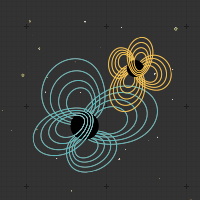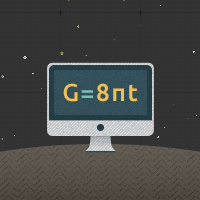Electron
A tiny particle usually found swirling around an atomic nucleus, the electron carries the standard unit of negative charge, which balances the positive charges in a nucleus. The interaction between electrons and nuclei is responsible for chemistry. Electrons can become detached from the nucleus, when given enough energy, and become free. Electrons are members of the particle class called fermions, and are roughly 2,000 times lighter than neutrons and protons.




